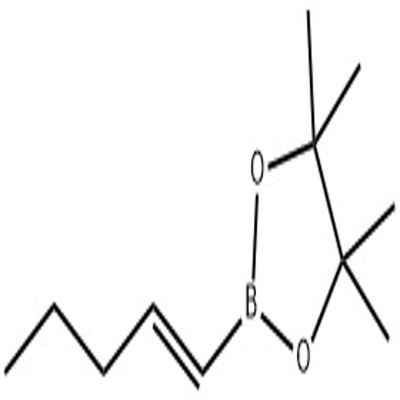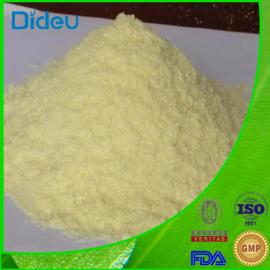-
Categories
-
Pharmaceutical Intermediates
-
Active Pharmaceutical Ingredients
-
Food Additives
- Industrial Coatings
- Agrochemicals
- Dyes and Pigments
- Surfactant
- Flavors and Fragrances
- Chemical Reagents
- Catalyst and Auxiliary
- Natural Products
- Inorganic Chemistry
-
Organic Chemistry
-
Biochemical Engineering
- Analytical Chemistry
- Cosmetic Ingredient
-
Pharmaceutical Intermediates
Promotion
ECHEMI Mall
Wholesale
Weekly Price
Exhibition
News
-
Trade Service
On October 13th, the State Administration of Market Supervision issued the Anti-monopoly Guidelines (Draft for Comments) on THE FIELD (hereinafter referred to as the Guidelines) for public consultation.
to prevent and stop monopoly behavior in the field of API, and guide operators in the field of API to operate in compliance with the law.
industry has different voices about the value of this guidance.
. In fact, cracking down on the monopoly of API has become one of the key contents of the pharmaceutical industry's rectification.
The Price Behavior Guide for Operators of Shortage Drugs and API, issued in 2017, became the first price monopoly guide for a specific industry since the implementation of China's anti-monopoly law.
and this release is more clear and detailed.
, the domestic API monopoly in various forms, including underwriting, rebates, denial of supply and other forms.
abuse of market position is a sharp increase in the price or cut-off of supply of some commonly used drugs in the short term.
-related data show that China's finished drugs have 1500 kinds of RAW drugs, of which only 50 kinds of API can be qualified for production, 44 kinds of API only two enterprises can produce, 40 kinds of API only three enterprises can produce, 10% of API can only be produced by single-digit enterprises, API production in the hands of a small number of enterprises.
this end, the Guide states that API operators should comply with the relevant provisions of the Anti-monopoly Law and prohibit horizontal monopoly agreements with competitors.
For API manufacturers, the Guide states that agreements with other API manufacturers with competitive relationships, such as joint production agreements, joint procurement agreements, joint sales agreements, joint tender agreements, etc., should be avoided, with the main content of agreeing on the quantity of API production, sales quantity, sales price, sales target, etc.;
For API distribution enterprises, however, it shall avoid reaching horizontal monopoly agreements with other API distribution enterprises with competitive relationships on the quantity purchased, the object of purchase, the price of sales, the quantity of sales, the object of sale, etc., the implementation of distribution cooperation agreements, procurement cooperation agreements, etc.;
At the same time, the Guide also points to specific situations of vertical monopolies, such as api manufacturers that set resale prices for downstream enterprises through contractual terms, or fixed dealer profits, discounts and rebates, which impose price restrictions by eliminating rebates, reducing discounts, refusing to supply or lifting agreements for downstream enterprises that do not comply with price limits.
also pointed out that for the identification of vertical monopoly agreements in the field of API, the relevant provisions of drug association review and approval may be considered.
In addition, API manufacturers or distribution enterprises with a dominant market position may abuse their dominant market position, for example, the sale of API at unfairly high prices, refusal to sell API, limited transactions involving API, tying of API, additional unreasonable trading conditions involving API, differential treatment involving API, and common abuse of market dominance.
the abuse of market dominance involving raw materials, the provisions of Chapter III of the Antimonopoly Law shall apply.
. Can severe penalties solve the underlying problem? In addition to the clear definition of monopoly behavior, the Guide also proposes to deal with the monopoly behavior of RAW drugs according to law: Monopoly behavior in the field of API in China is frequent, operators have a high degree of awareness of monopoly behavior, API operators to carry out monopoly behavior, especially knowing that the relevant acts in violation of the Anti-monopoly Law still deliberately circumvent anti-monopoly investigation, anti-monopoly law enforcement agencies will strictly deal with.
Although api monopoly has become one of the key elements of the pharmaceutical industry consolidation, and since 2017 has issued a series of relevant policy documents, but under strict supervision, API enterprises because of monopoly behavior is not a minority of cases, the state level has issued a series of penalties for API monopoly cases.
February 10, 2017, the State Administration for Industry and Commerce issued a notice to the monopoly of methyl salbonate raw materials, Wuhan Emerging Elite Pharmaceutical Co., Ltd. issued a fine of 2.2 million yuan.
On February 13, the official website of the National Development and Reform Commission (NDRC) also announced the punishment notice for the violent obstruction of anti-monopoly investigation by Shandong Weifang Longyu and Pharmaceutical Co., Ltd., which had a monopoly on API, which was the first ticket issued by the National Development and Reform Commission to obstruct anti-monopoly investigation.
two tickets to bring the issue of the monopoly of API back to the public.
On July 31, 2017, the National Development and Reform Commission (NND) issued a legal decision to deal with the case of Zhejiang Xinsaike Pharmaceutical Co., Ltd. and Tianjin Handway Pharmaceutical Co., Ltd., which abused their dominant market position by selling isoniazid raw materials at unfairly high prices and refusing to trade without valid reasons, and fined the two companies a total of 443,900 yuan.
the outcome is still controversial.
To methyl salphate raw materials, for example, for API manufacturers, environmental protection and production costs bring greater pressure, the monopolist throws out attractive high prices to buy prices, you can buy out all the output of pharmaceutical companies, accounting for the national market share.
media at the time estimated that the monopoly Shuntong Pharmaceuticals may have benefited from nearly 100 million yuan, while the official penalty notification fine is only a few million yuan.
to this end, in November 2017, the National Development and Reform Commission (NDRC) issued the Guide to Price Behavior of Price Operators of Shortage Drugs and API, which expounds the conduction relationship between API and API, and draws a clearer red line for the monopoly of API price increases, so as to facilitate the strengthening of price supervision of API.
, the anti-api monopoly significantly increased, a single penalty from tens of thousands, hundreds of thousands to tens of millions of gradually increased, the intensity is constantly increasing.
April 14 this year, the State Administration of Market Supervision and Administration issued administrative penalties for abuse of market dominance by three calcium glucosate API distribution enterprises, resulting in a total fine of 325.5 million yuan.
is the largest fine in anti-monopoly cases in the field of API since the anti-monopoly law was implemented.
The Administrative Penalty Decision" on the website of the State Administration of Market Supervision and Administration shows that shandong Kanghui Pharmaceutical Co., Ltd., Weifang Puyunhui Pharmaceutical Co., Ltd., Weifang Sun God Pharmaceutical Co., Ltd. and other three companies abused their dominant position in the chinese market for the sale of injection calcium gluconate raw materials from August 2015 to December 2017, and controlled the sale market of calcium gluconate in China by underwriting, buying in large quantities or requiring manufacturers not to sell them to the outside world.
of the above three production enterprises is the main source of calcium glucosate in the domestic market.
channels are controlled by the operating company, downstream preparation enterprises have no room for negotiation, can only passively accept price increases.
all three distribution enterprises are registered as independent legal persons, but are controlled by Kanghui.
And the publication of the Guide is undoubtedly the focus on the monopoly of raw materials and the form of initiatives, but the industry still issued questions, after the release of the document regulatory authorities will take the initiative to attack or rely on the form of reporting, from the API monopoly profits from the enterprise can stop there, it is still unknown.
industry has also called for breaking the monopoly of API, in addition to strengthening supervision, in addition to the need to reduce the threshold of market access for API, broaden the supply channels of pharmaceutical raw materials.
.







